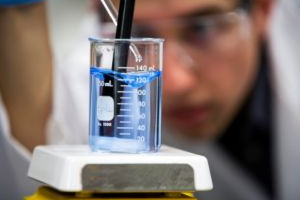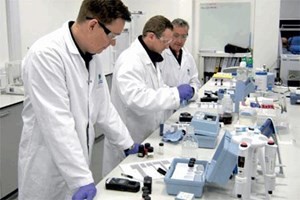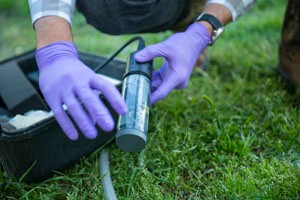Method for detecting divalent iron in water quality by o-phenanthroline colorimetry
In daily water quality testing, we found that heavy metals account for a considerable proportion of water pollution. We have also introduced to you that heavy metals are highly toxic, and they are very easy to accumulate and expand in the biological chain
Common water quality organic matter pollution indicators and relationships
In water quality testing, COD, BOD, TOC, TOD, etc. are commonly used indicators for the detection of organic compounds. Organic pollution in water generally refers to the deterioration of water quality caused by hydrocarbons and their derivatives. It can
The classification of common indicators for water hardness measurement and their main points of use
In daily life, some light yellow scales appear on the inner wall of the kettle. Many people know that this is caused by the hardness of the water we drink. I have introduced you that the hardness of water is divided into two types, one is temporary hardne
Distillation-neutralization titration method to detect ammonia nitrogen in water
The main function of ammonia nitrogen in water is to nourish plant growth. However, once the content of ammonia nitrogen in the water is too much, it will cause a large number of algae and microorganisms to grow, excessive consumption of dissolved oxygen
Using potassium permanganate titration method to detect oxygen consumption in water
Redox titration is a commonly used analytical method in water quality testing. It can be divided into different methods according to the type of titrant used. Commonly used in daily water quality analysis are potassium permanganate titration, potassium di
How to Detect Water Hardness by Coordination Titration
Water hardness refers to the total amount of Mg2+ and Ca2+ concentrations in the water, and is one of the important indicators of water quality. Hardness can be divided into temporary hardness and permanent hardness: temporary hardness refers to the hardn
Method to eliminate interference when detecting metal ions in water
Heavy metal detection has always been a difficult problem in water quality determination, because there are often multiple metal ions in actual water samples, and interference will occur when one or more metal ions are to be detected. For example, when ED
Preparation method of relevant standard solution for residual chlorine detection
There are relevant standards and methods for the residual chlorine detection of drinking water and environmental source water. Some of these methods require the use of buffer solutions, so that they can be offset or reduced during water quality testing. T
How to use o-tolidine colorimetric method to detect residual chlorine in water
Residual chlorine generally refers to the residual chlorine ions in the water after chlorine disinfection. It is stipulated in the domestic drinking water standards that the free residual chlorine content of the centralized water supply factory water shou
How to detect hexavalent chromium in water with diphenylaminourea colorimetry
Chromium is a silver-white shiny, hard and brittle metal. Because of its heat resistance, corrosion resistance and wear resistance, it is often used for chrome plating on other metal surfaces to make it durable. It is also used to make chrome steel and Ni













